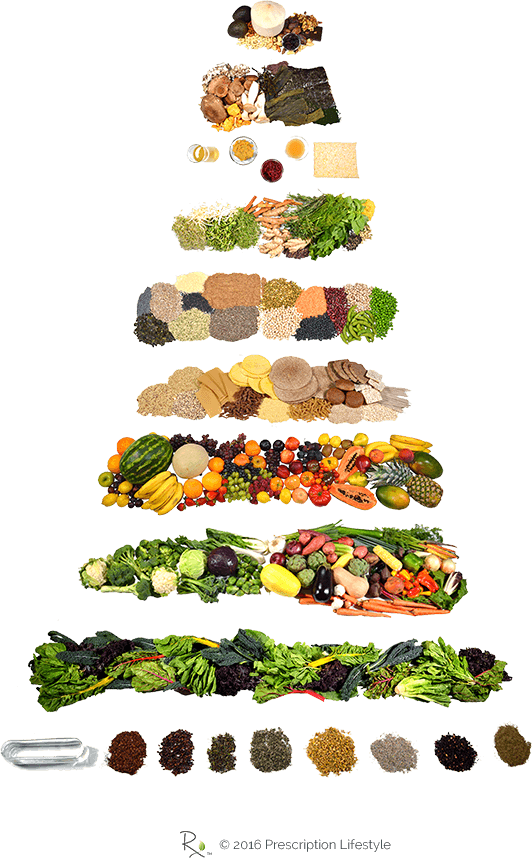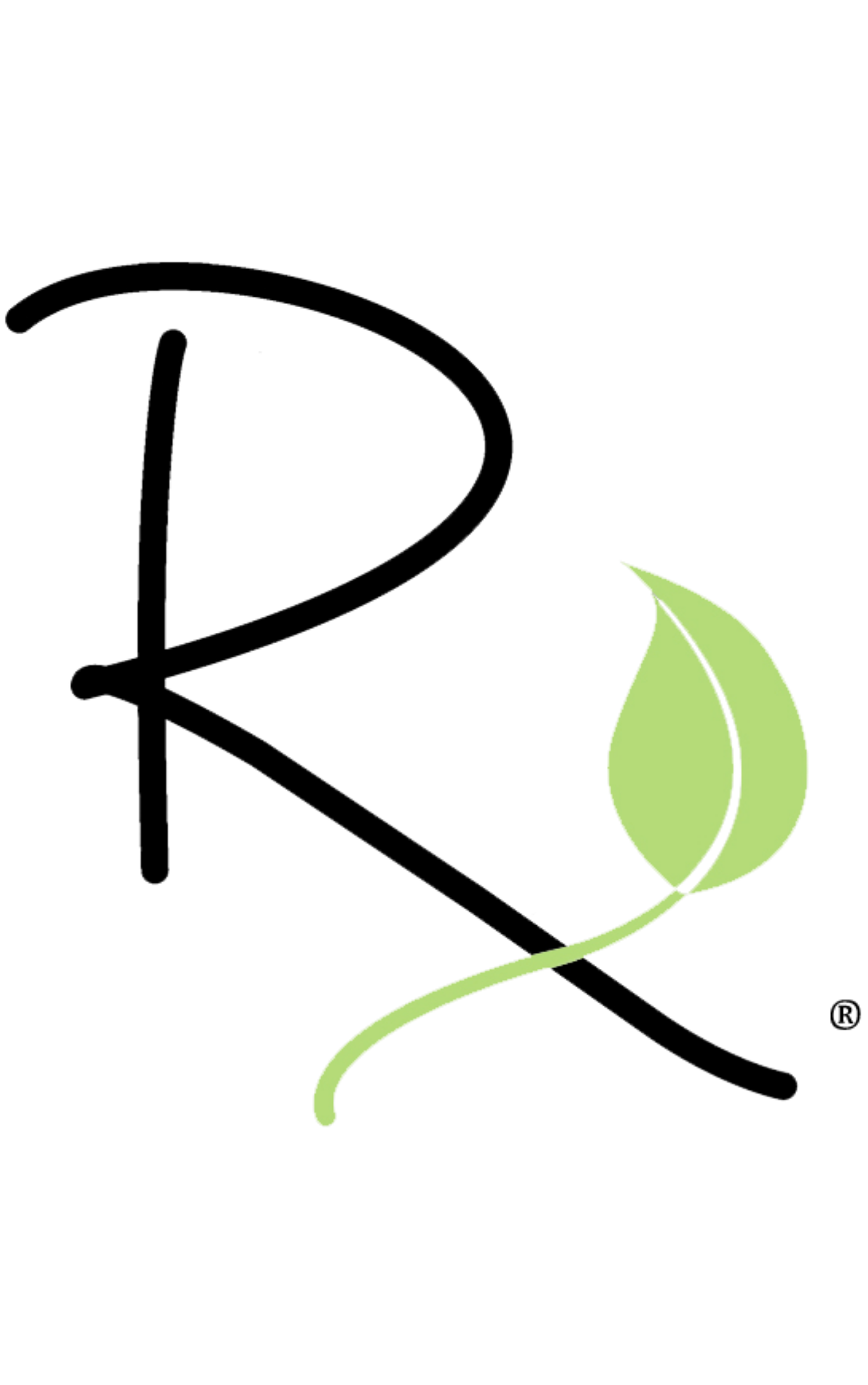Food Pyramid
Levels of the Whole Plant-Based Food Pyramid created by Justyna Sanders, M.D.
Click the Food Pyramid to learn more about each section.

Healthy Fats
Coconut, Nuts (Walnut, Brazil, Pecans, Hazelnuts, etc.), One-Ingredient Nut Butter, Non-Dairy Milk (without added fillers/chemicals), Avocado, Olives, Dark Chocolate, etc. (must be in the form of whole food) – If you have heart disease, you should avoid this category completely
*if diagnosed with heart disease, please limit the consumption of this category
Dried Fruit
Dates, Apricots, Raisins, Goji Berries, etc. (unsulphured)
EXTRA
Sparingly – Maple Syrup, Coconut Palm Sugar, Unpasteurized Honey, Gray(Celtic) Sea Salt, Himalayan Salt
*sparingly in this case means not on a regular or daily basis
Sprouts
Mung Bean Sprouts, Broccoli Sprouts, Sunflower Sprouts, Bean Sprouts, Radish Sprouts, etc.
Microgreens
Kale, Arugula, Clover, Turnip, etc.
Herbs
Basil, Parsley, Cilantro, Rosemary, Thyme, Chives, Mint, Dill, Oregano, Sage, etc.
Spices
Ceylon Cinnamon, Ginger Powder, Turmeric, Garlic Powder, Onion Powder, Cumin, Paprika, Black Pepper, Cayenne, Mustard Powder, Cloves, etc.
Miscellaneous
Nutritional Yeast, Cacao Nibs and Powder
*nutritional yeast should be avoided if you have Crohn’s Disease or Hidradenitis Suppurativa
Cruciferous Vegetables
Bok Choy, Broccoli, Red and Green Cabbage, Brussel Sprouts, Cauliflower, etc.
Other Vegetables
Carrots, Squash, Eggplant, Peppers, Artichoke, Sweet Potatoes, Red Potatoes, Zucchini, Beets, etc.
*Focus on getting prebiotic-rich vegetables daily – Dandelion Greens, Chicory, Burdock, Asparagus, Jerusalem Artichoke and Allium Vegetables – Onions, Leeks, Garlic and Scallions
Water
Filtered, Fluoride and Arsenic free
Herbal Tea
Lavender, Chamomile, Hibiscus, Tulsi Holy Basil, Lemon Balm, Mint, etc.
Other Tea
Green and White Tea (aim to not drink with food, so as to not decrease iron absorption)
Black Coffee
Sparingly (2 cups or less per day – aim to not drink with food, so as to not decrease iron absorption)
TIPS
- Whole food, mostly plants
- Eat as many plants as desired each day
- Organic whenever possible – dirty dozen at the very least – Please refer to: https://www.ewg.org/foodnews/dirty_dozen_list.php
- Non-GMO (especially soy and corn)
- Local whenever possible
- Mix raw and cooked whole food depending on dietary needs, personal preference and maximization of nutrients
- Choose a variety of different whole plant foods
- Focus on nutrient-dense foods
- Avoid all types of oil and refined salt (obtain iodine from seaweed)
- Aim for low to no processed food (if processed, choose products with whole plant-based ingredients only)
- Remember that protein as well as calcium are more than sufficient on this lifestyle
- Age, nutrient deficiency, underlying health condition or disease state may require adjusting the pyramid to one’s needs i.e/those with Crohn’s or Hidradenitis Suppurativa should avoid ingesting nutritional yeast
- Sensitivity or intolerance to yeast, gluten and/or certain types of grains such as wheat, barley or rye are common – take note of how you feel when ingesting foods that contain these
- Always consult your primary healthcare provider for specific dietary recommendations especially if you have one of the following conditions:
- Pregnant or planning
- Dietary restrictions
- Allergies, intolerances or sensitivities
- Taking any Medications/Supplements/Herbs
UTILIZATION
- Maximize the bottom half of pyramid, and minimize the top half
- On a daily basis, aim to get a variety of foods from each level of the pyramid and its corresponding section
- May require Vitamin D supplement (depending on sun exposure)
- May require Iodine supplement (depending on seaweed intake)
- Requires Vitamin B12 supplement (may vary depending on intake of fortified food such as nutritional yeast)
- Aim to get approx. 250 milligrams/day of DHA (omega-3 fatty acids from algae such as chlorella)

